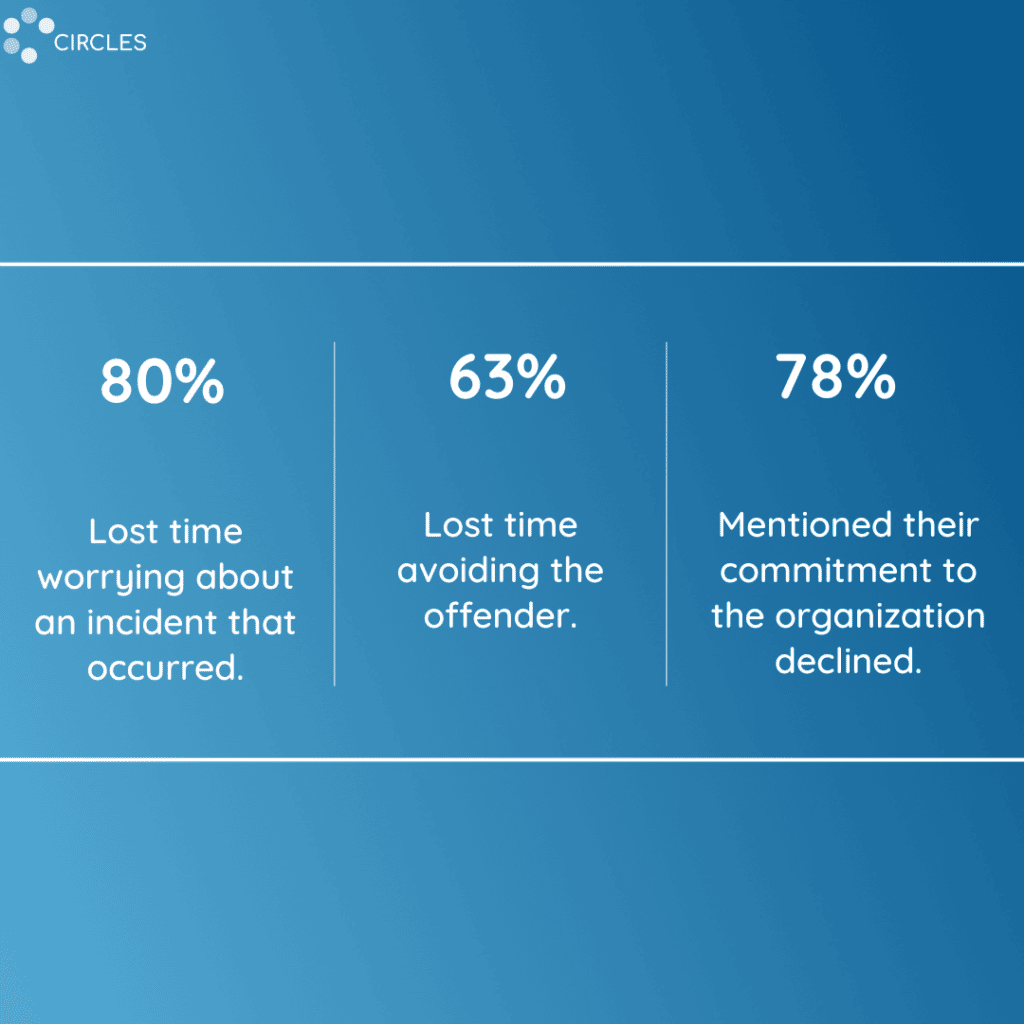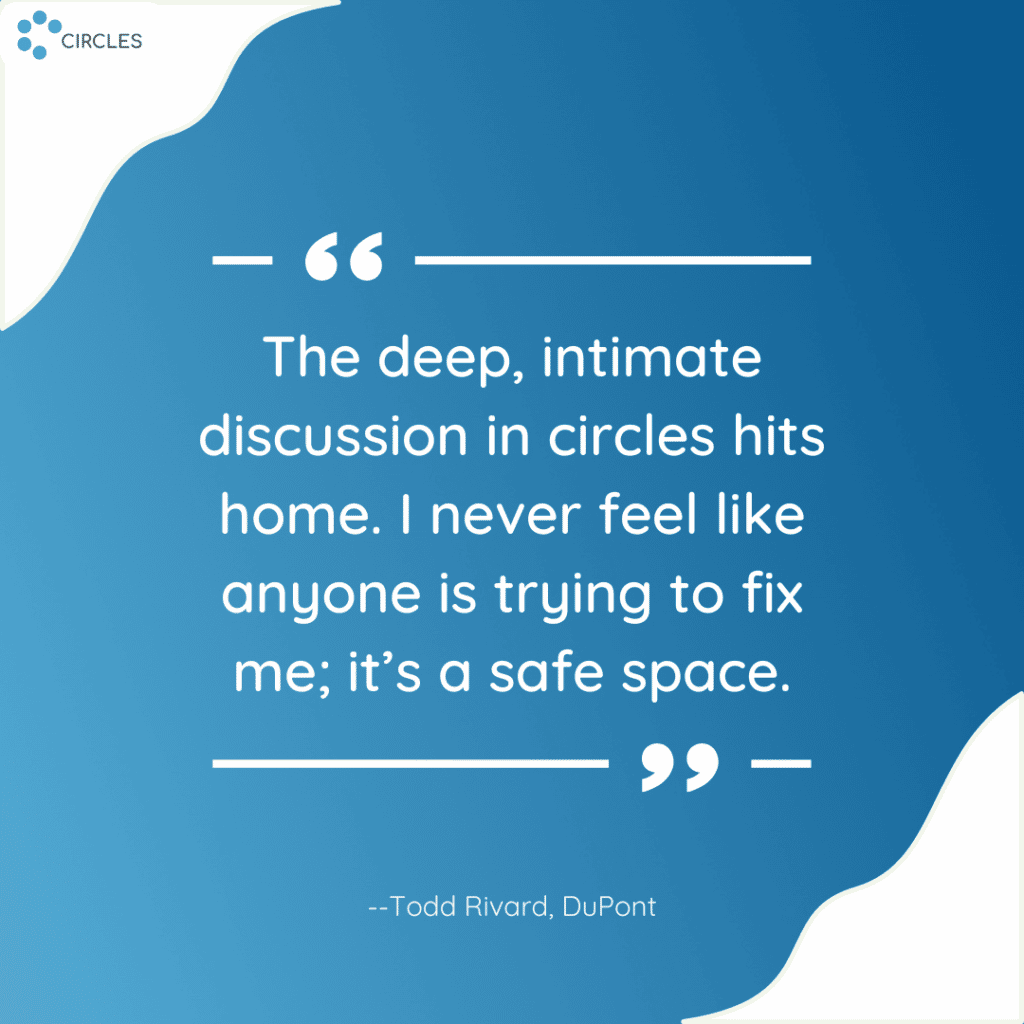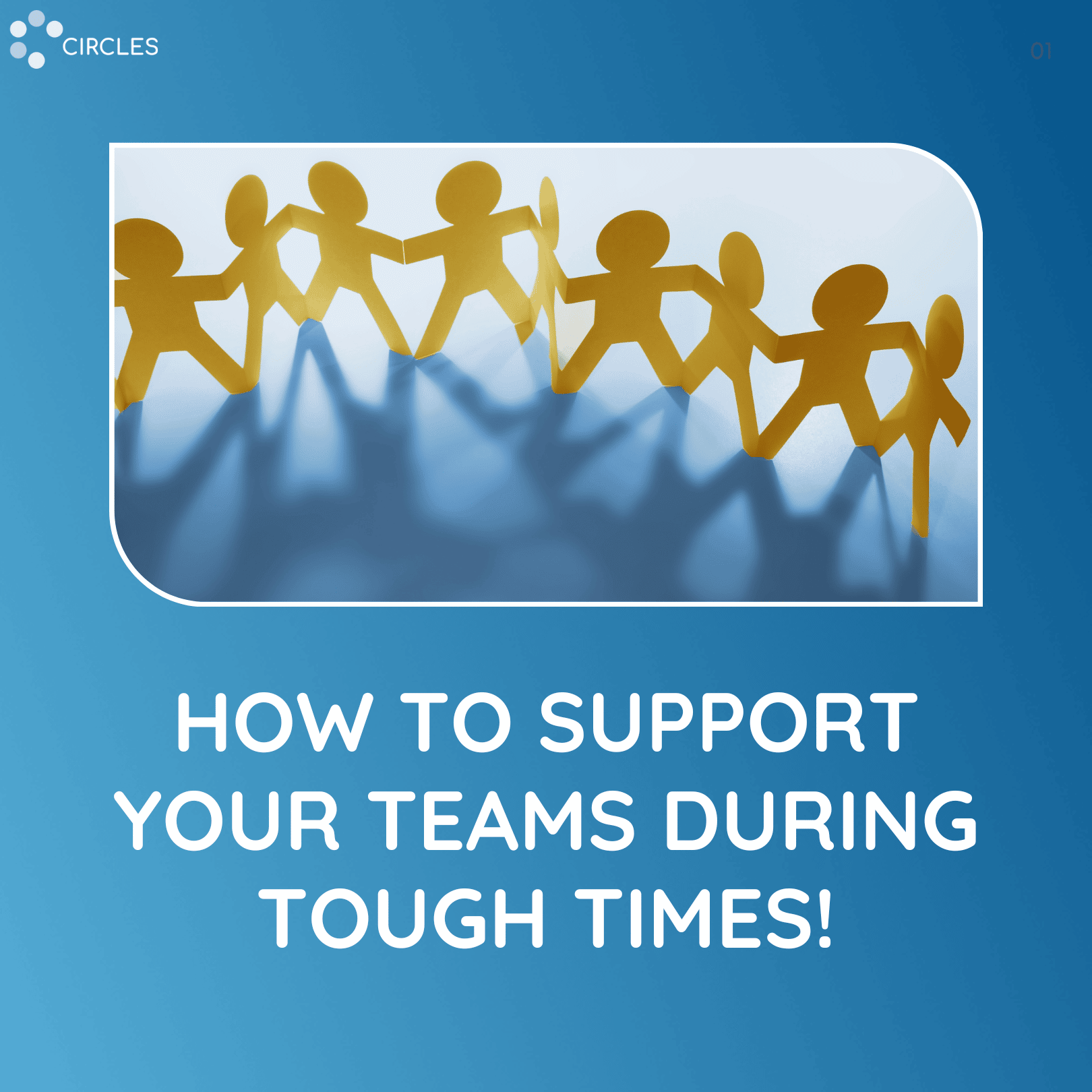Amidst slashed budgets and tightened purse strings, Learning & Development and onboarding professionals search for ways to continue supporting and developing their teams. Now more than ever, modern workplace teams–local, hybrid and distributed–need innovative ways to connect and grow so they can effectively collaborate.
That’s why over the past six years, we’ve built a company focused on bringing inclusive spaces to organizations. Distinct from tactical work, circles often surface the most critical team challenges–things that might otherwise be left unsaid.
Great leaders know that effective teaming involves more than getting work done. It’s about connection and belonging first. To foster deep ties, they carve out time to create psychological safety, layer in accountability, and fuel shared purpose.
Psychological Safety
Safe spaces in the corporate world are crucial and hard to come by. When psychological safety is present, it provides a level of trust inviting vulnerable interactions without fear of punishment or rejection.

When there’s a breach in psychological safety, LeaderFactor research shows it takes a significant toll on employees:
80% lost time worrying about an incident that occurred.
63% lost time avoiding the offender.
78% said their commitment to the organization declined.
That’s why safety is a key Circl.es value–and a reported outcome from our participants. When colleagues feel safe with one another, trust grows, and they collaborate more effectively as a result.
“The deep, intimate discussion in circles hits home. I never feel like anyone is trying to fix me; it’s a safe space.” Todd Rivard, DuPont

Accountability
Circles are designed to function as creative, agile, small groups, not the kind where subordinates follow orders. Every time a participant opens up with a transparent share, it sets the conversational tone–especially if that person has a leadership role in the organization. Vulnerable team interactions remind participants of their common humanity. Standing on that foundation of trust, teams then experience the freedom to grow together, holding each other accountable for that growth.
“It’s a safe space where people are peers and there’s accountability. I don’t think that type of candor happens naturally in other spaces. Peers should feel empowered to hold their peers accountable to the growth they say they want to see in themselves.” Jasmine Cumberland, JumpCrew
Fuel Shared Purpose
Employees long to feel that their work impacts the organization in a meaningful way. The day-to-day weeds of a team’s tactical work can leave little room to feel a sense of belonging to something larger, or to have the kind of perspective that can provide a feeling of impact.
When teams get “tuned”, teammates meet on common ground, rooting their conversation in what binds them, while uncovering what’s coming between them. Great leaders know how to shine the light on commonalities and a shared vision for their collaboration.
Providing spaces like circles will likely help develop and retain employees: McKinsey’s July 2022 report on the great attrition suggests “organizations can make jobs “sticky” by investing in more meaning, more belonging, and stronger team and other relational ties.”
Outcomes
Safety, accountability and shared purpose in circles builds better and better teamwork over time. It’s the X-factor you just can’t get through project management software, another Slack thread or a trip to the ropes course (as valuable as those tools may be).
Because we know this type of high-quality collaboration is in demand, you’re invited to a free demo of tuning your teams today.
